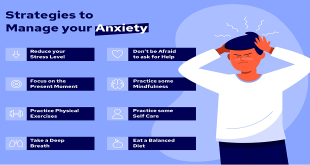It seems good healthy eating may be more effective.
Increase your exercise time, and limit your food intake! We have been told that this is the only way to lose weight and it seems logical. If we burn more calories and oxygen than we consume, we should lose weight. But is this true?
New Research
New research from Loyola University in Chicago suggests that this approach will only have results in the short term. It is not the answer to losing weight in the long term. A healthy diet will help lose weight and maintain this weight loss. Lara Dugas, the lead author of this research, is an assistant professor in the Department of Public Health Sciences at Loyola. In her statement she explains that the results of her study show that physical activity may not be able to prevent weight gain.
Previous Research
Despite the latest findings, much earlier research found that exercise can assist in weight loss by burning calories. In one study conducted over ten months, the participants were divided into three groups to check the impact of cardio exercise.
The first two groups did cardio exercises five days a week, to burn 400, or 600 calories. The third group did no cardio exercise. Following this regime, groups one and two lost 4.3% and 5.7% of their body weight respectively, while the third group gained 0.5%.
Although these results are important in the research, they neglect the behavioural impact of the exercise regime. When working out regularly, most people feel hungrier, and are more likely to increase their calorie intake, which leads to the theory that how much we eat and the type of food eaten could have a greater effect on weight than exercise.
Loyola University Research
Dugas and her colleagues studied 2000 adults from the US, Ghana, South Africa, Jamaica and the Seychelles. The new study, which was published in Peer J, measured levels of physical activity and weight change over three years. To track both step count and expenditure of energy, the participants used accelerometers (tracking devices) for a week. Other measurements included weight, height and body fat. After baseline data was collected they were measured again after one year and then after two years.
From the baseline data they found that the participants from Ghana had the lowest weight (139lbs) and the Americans had the highest (202lb for women and 206lb for men). Based on guidelines from the US Surgeon General the data showed Ghanaians were generally more fit than Americans.
The Centres for Disease Control and Prevention recommend adults need 2 ½ hours of moderate to intensive physical activity each week. The researchers concluded that it was not evident that physical activity alone would impact on future weight gain, and from that they deduced that other factors must be involved. One of these factors, the amount and type of food consumed, must be playing a more critical role.
Conclusion
The low success rate experienced by people in a weight loss regime that focuses on exercise is because people find it difficult to correctly estimate the number of calories they consume and expend. In 2010 a study asked participants to consume the same amount of calories they thought they were actually expending. The results from this study showed they were eating up to three times the amount they were actually expending. The researchers suggested that these results showed that calorie expenditure didn’t really help.
To maintain a healthy weight, diet is a crucial factor. The size of the portions eaten and the type of food consumed are critical in maintaining a healthy weight. In order to lose weight and maintain the loss, as well as remain healthy, we need to both eat well and exercise regularly.
 Pagalsogns.me
Pagalsogns.me



